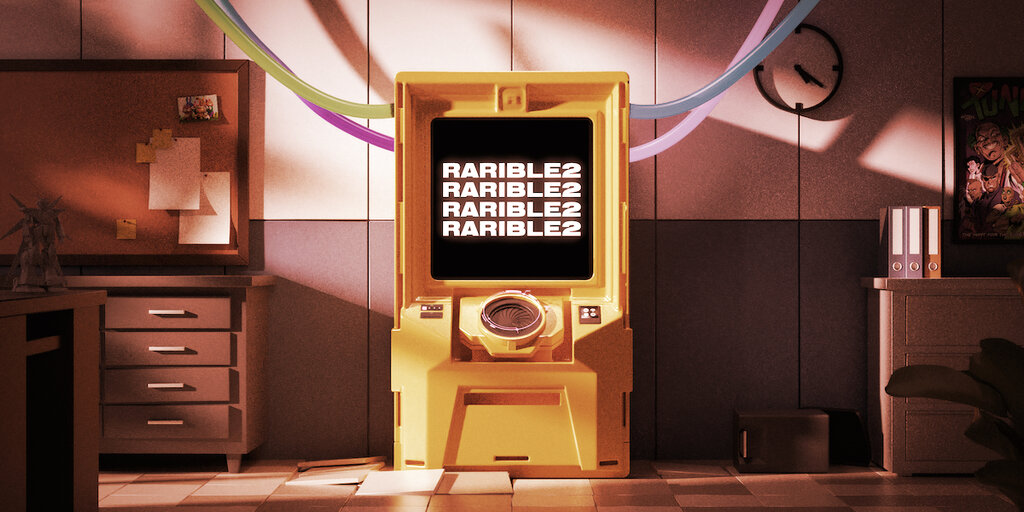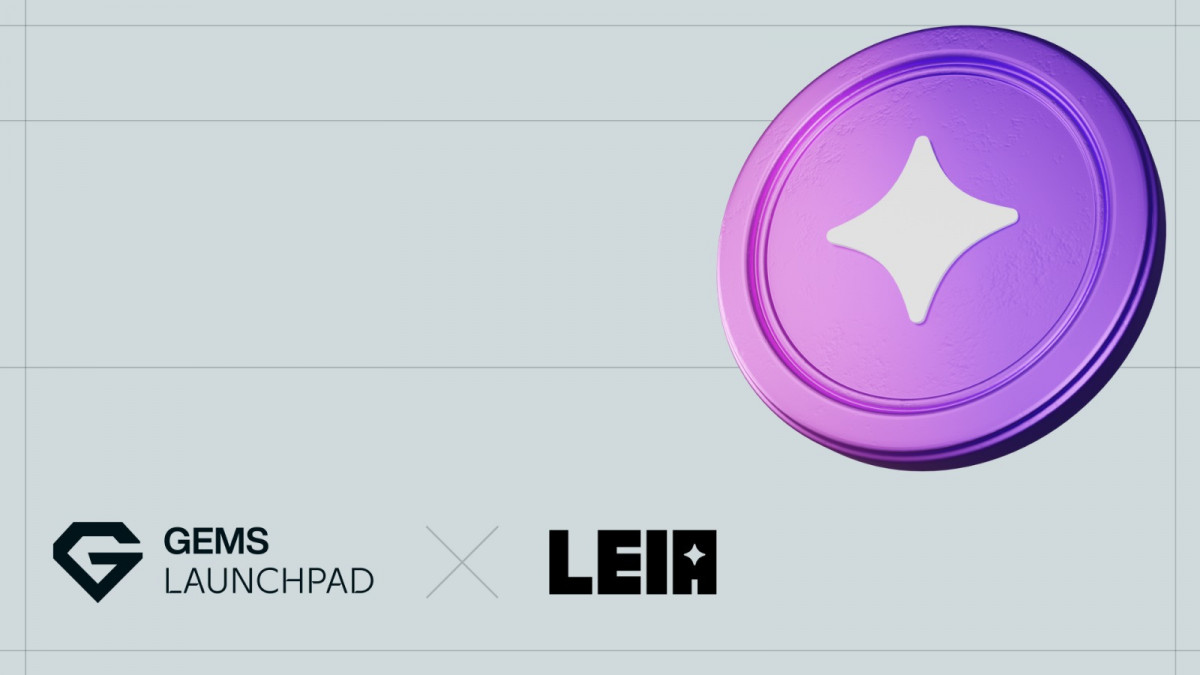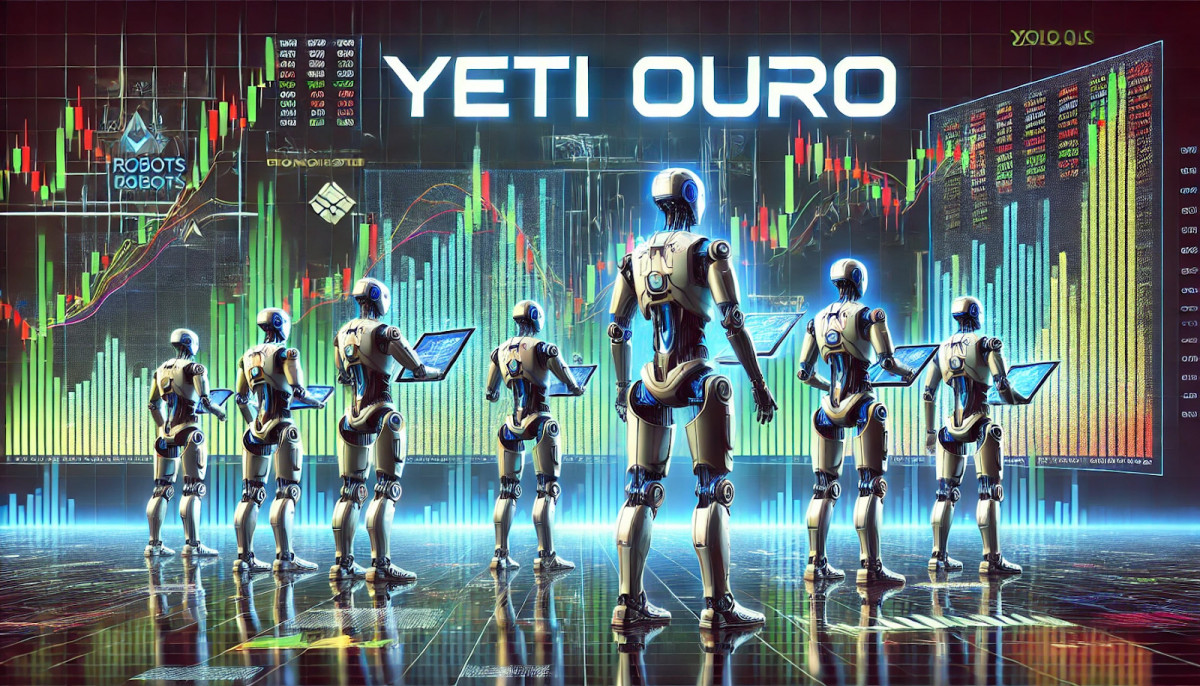
In brief
- NFT marketplace Rarible is now indexing listings from four other Ethereum marketplaces.
- It will also award new RARI token rewards in a model that minimizes the risk of wash trading and incentives paying creator royalties.
NFT marketplace Rarible announced today that it has launched a suite of new features in a package it’s calling Rarible 2. It’s not an entirely new platform—but it is an expanded one that aggregates listings from more marketplaces and also introduces new token rewards for traders.
Rarible co-founder Alex Salnikov described the launch to Decrypt as a “big milestone in the company timeline,” with changes not only to the platform’s interface, but also token rewards and governance, as well as NFT listings pulled from a wider array of other marketplaces.
The new Rarible.com aggregator indexes Ethereum NFT listings from four other marketplaces: OpenSea, LooksRare, X2Y2, and Sudoswap, letting users find more collectible and artwork listings and potentially better prices. The Rarible.com marketplace still includes Rarible’s own listings, as well, handled by its own internal order book.
Previously, Rarible only integrated listings from OpenSea, the largest NFT marketplace by trading volume. Unlike traditional marketplaces, Sudoswap enables NFT trading through liquidity pools—but Salnikov told Decrypt that the buying experience for Rarible users will be the same as for the other aggregated platforms.
Rarible was the first NFT marketplace to launch its own token in 2020, with RARI used for both trading rewards and decentralized governance. Since then, marketplaces like LooksRare and X2Y2 have used reward tokens on a wider scale to try and attract users from other platforms and incentivize trading.
That approach has led to rampant wash trading—that is, manipulating trades to try and earn more token rewards in return. Often, a user will trade an NFT back and forth between their controlled wallets at vastly inflated prices, a process that generated billions of dollars’ worth of wash trading at LooksRare earlier this year.
Rarible is expanding its trading rewards with the launch of its enhanced marketplace, but Salkinov said that the system has been designed in a way that “can’t be gamed” by traders attempting to maximize the rewards, and won’t be susceptible to wash trade manipulation. And some of the rewards are tied to paying creator royalties—a hot topic in the NFT space of late.
Buyers can earn RARI token rewards by purchasing an NFT from an aggregated marketplace that honors creator royalties, which involves the seller paying additional fees (often between 5% and 10%) on each sale. The amount of tokens rewarded will be proportional to the royalty paid, up to a limit. Rewards will also be offered to users who buy an NFT from a selection of projects each week that are deemed RARI Rewards Collections.
RARI token holders will vote on which projects are eligible for rewards each week. And sellers can get in on those rewards too: anyone who lists an NFT from one of those collections through Rarible will also receive token rewards. Rarible will also airdrop RARI tokens to users who bought at least three NFTs through its marketplace from July 1 to September 30.
Rewarding royalties
By tying some rewards to paying creator royalties on NFT purchases and others to a small, rotating selection of community-voted projects, Salnikov believes that Rarible will successfully avoid the pitfalls faced by competitors with less-discriminating token incentives.
“I believe we are the first to actually come to the market with rewards that can’t be gamed,” he said. “Everything that you are rewarded for is useful for other people. You can’t just do it with yourself. That’s a very big deal for us in defining this token problem.”
Rarible’s initiative comes amidst a growing debate over whether marketplaces should honor creator royalties. Most of the notable Solana NFT marketplaces (notably Magic Eden) have made paying royalties optional. Sudoswap doesn’t honor Ethereum royalties, and they’re optional for some projects on X2Y2.
By contrast, Rarible will continue to enforce royalties for NFTs listed through its order book, and only offer RARI token rewards for aggregated purchases in which royalties are paid. “We believe that royalties are absolutely important,” Salnikov asserted, describing them as a “core innovation” of NFTs representing digital artwork, versus the traditional art market.
Collectively, the expanded aggregator and rewards are meant to drive loyalty to Rarible, as well. Rarible doesn’t charge an extra fee for aggregation—Salnikov said the feature is purely meant to make users more “comfortable” with using Rarible, and the marketplace may then benefit from the sales of NFTs listed natively through its own order book.
As users earn RARI token rewards, they can lock at least 100 RARI into a smart contract—that is, the code that powers autonomous decentralized apps—to earn extra perks through a program called Rarible Prime. Under Prime, users pay no platform trading fees for Rarible-listed NFTs, and can vote on the weekly Rewards Collections.
Salnikov said that the rewards “can’t be gamed” in a negative way, but there’s clearly some gamification to the way the model has been designed. But it’s done so in a way that’s meant to encourage users to keep trading, as well as participating in community governance—all in the hopes of making Rarible their go-to NFT destination above others.
Stay on top of crypto news, get daily updates in your inbox.
Read More: decrypt.co








 Bitcoin
Bitcoin  Ethereum
Ethereum  Tether
Tether  XRP
XRP  Solana
Solana  Dogecoin
Dogecoin  USDC
USDC  Cardano
Cardano  Lido Staked Ether
Lido Staked Ether  TRON
TRON  Avalanche
Avalanche  Wrapped stETH
Wrapped stETH  Sui
Sui  Toncoin
Toncoin  Stellar
Stellar  Chainlink
Chainlink  Shiba Inu
Shiba Inu  Wrapped Bitcoin
Wrapped Bitcoin  Hedera
Hedera  Polkadot
Polkadot  WETH
WETH  Bitcoin Cash
Bitcoin Cash  LEO Token
LEO Token  Uniswap
Uniswap  Litecoin
Litecoin  Pepe
Pepe  Hyperliquid
Hyperliquid  Wrapped eETH
Wrapped eETH  NEAR Protocol
NEAR Protocol  Ethena USDe
Ethena USDe  USDS
USDS  Internet Computer
Internet Computer  Aptos
Aptos  Aave
Aave  Mantle
Mantle  Render
Render  Cronos
Cronos  POL (ex-MATIC)
POL (ex-MATIC)  Bittensor
Bittensor  Ethereum Classic
Ethereum Classic  MANTRA
MANTRA  WhiteBIT Coin
WhiteBIT Coin  Monero
Monero  Tokenize Xchange
Tokenize Xchange  Virtuals Protocol
Virtuals Protocol  Artificial Superintelligence Alliance
Artificial Superintelligence Alliance  Dai
Dai